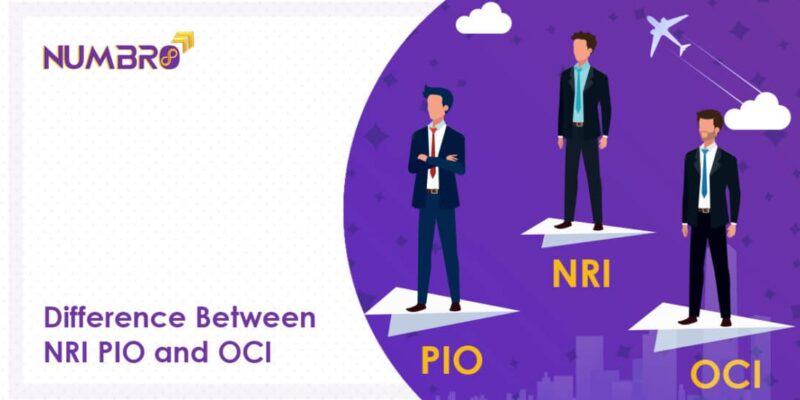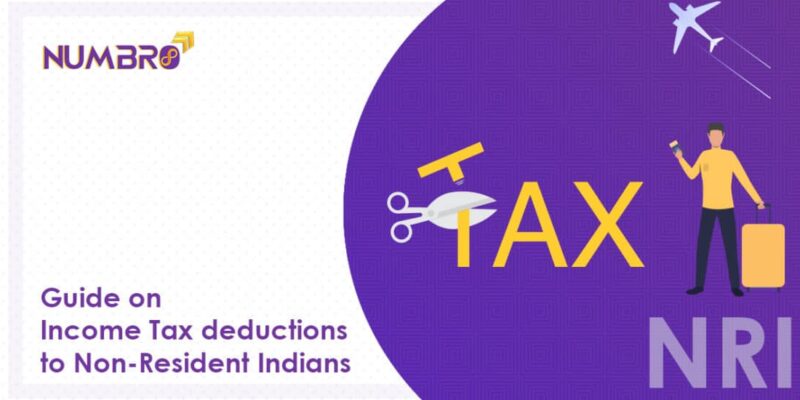Difference Between NRI PIO and OCI
Efforts are made to make this article to guide to explain the differences between NRI,PIO and OCI. Income tax act elucidates about the residential status of persons but there are a few terms that are important to be known to understand benefits and limitations in the constitution. NRI,PIO and OCI are those statuses dependent on the nationality, origin, employment and other factors as elucidated below.
Non-Resident Indian (NRI)
A Non-Resident Indian (NRI) is an individual who holds an Indian citizenship but resides outside India. In general words an Indian citizen who stays in a foreign country is considered as a Non Resident Indian(NRI). The term Non Resident Indian is defined under Income Tax Act 1961 as

Who can become NRI
- An Indian Citizen who stays abroad for employment or carrying on business or vocation outside or stays abroad with an intention for an uncertain period is a non-resident Indian(NRI).
- Indian citizen who works abroad with any foreign government agency like United Nations Organisation (UNO) including its affiliates , International Monetary Fund (IMF) ,World Bank etc.
- Employees of Central and State Government and public sector undertaking deputed abroad on assignments with foreign governments/agencies/organisations or posted to their own offices abroad.
- Persons of Indian origin as defined by Income tax Act
Indians going for a short period for seminars, conferences, study, lectures, or research work are not Non-Resident Indians(NRI).
Students are considered as residents until he/she finishes studies and starts working abroad.
Person of Indian origin (PIO)
A person of Indian origin(PIO) is a citizen of any country whose ancestors were Indian nationals at least for four generations. A foreign citizen (other than citizens of Afghanistan, Bangladesh, Bhutan, China, Iran, Nepal, Pakistan and Sri Lanka)is deemed to be a Person of Indian origin if
- he/she at any time holds an Indian passport, or
- he/she or anyone of his/her parents or any of his/her grandparents was a citizen of India
PIO Cards are issued to foreigners married to Indian citizens, a person whose parents,/grandparents/great grandparents are Indian citizens or one parent is an Indian citizen.
The Person of Indian Origin card scheme was withdrawn by the Government of India and was merged with the OCI scheme. All currently held PIO cards are now treated as OCI cards.
Overseas Citizenship of India (OCI)
Indian constitution does not allow holding Indian citizenship and citizenship of a foreign country simultaneously. Based on the recommendation of the High Level committee the Government has granted overseas citizenship of India.
People of Indian Origin (PIO) relocated from India and natives of a remote nation other than Pakistan and Bangladesh are qualified for Overseas Citizenship of India (OCI) as long as their nations of origin permit double citizenship.
Who is eligible to be Overseas Citizen of India(OCI)
PIOs ,who have migrated from India after 26/ 01/ 1950 and
- who were citizens of India on or at any time after 26/01/1950
- who were eligible to become Indian citizens on 26/ 01/1950
- belonged to a territory that became part of India after 15/08/1947
- their children and grandchildren
whose country of nationality allows dual citizenship, will be eligible to be registered as Overseas Citizen of India(OCI). Minor children of such persons are also eligible for Overseas Citizenship of India(OCI).
OCI is a passage to become Indian citizen
The grant of OCI status is extended to citizens of all those eligible countries which extend dual nationality other than citizens of Pakistan and Bangladesh.
Benefits
Overseas Citizenship of India allows a holder:
- Multiple-entry, multi-purpose lifelong visa to visit India;
- An exemption from foreigner registration requirements for any duration of stay in India; and
- Parity with non-resident Indians in financial, economic and educational fields except in the acquisition of agricultural or plantation properties.
Limitations
Overseas citizens of India(OCI) are not citizens of India from the point of view of Indian constitution and will not enjoy the following rights even if resident in India:
- They do not have the right to vote,
- They do not have the right to hold the offices of Prime Minister, President, Vice-President, Judge of Supreme Court and High Court, member of Lok Sabha, Rajya Sabha, Legislative Assembly, or Council.
- They do not have the right to any public services (government jobs).
- They do not have the right to hold farmland (agricultural property).



